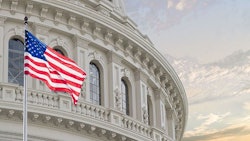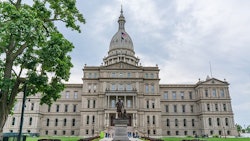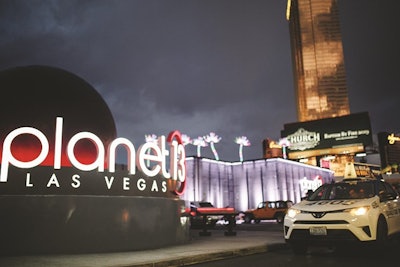
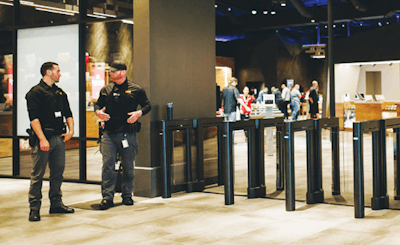
Creating a Las Vegas experience that competes with the Bellagio Water Show’s geyser-like fountains or the flashy light and music show at the Wynn’s Lake of Dreams isn’t easy, especially as a cannabis dispensary working within strict state regulations. But Planet 13 has managed to create a very “Vegas” atmosphere while also being compliant. And compliance, of course, means significant security. David Farris, director of marketing and sales, explains how the company keeps a strong security presence without detracting from the customer experience.
Michelle Simakis: You have a Planet 13 globe and water feature in front of your dispensary, and just beyond the desk where customers check in, there is a digital, interactive koi pond in the floor where the “fish” swim in response to your feet. You clearly want to give customers a good first impression. How do you make sure that it’s fun, but also secure?
David Farris: The vision for Planet 13 has always been to be a large, beautiful marijuana superstore, but … also a destination. [The water feature] is a huge photo moment for visitors. (Eighty-five percent of the customer base is tourists.) But we always wanted a presence of safety and openness, where people can shop and have fun. We redefined what that looked like from a security standpoint.
MS: How did you redefine that?
DF: We allow our security guards to engage and be part of our operation. Whether you are checking in or parking, security officers have coverage in those areas, but they are also greeting you and saying, “Welcome to Planet 13.” We have a director of security who works with our third-party security team.
MS: The people at the reception desk are not security guards though, correct?
DF: That’s a host position, but when we first opened, we had a security guard ... right when you walked in, who said, “Hey, please have your ID out,” and all that stuff. And that wasn’t … what we really wanted. So we created a role for a line host because we do have a high volume of traffic. Their role is to get customers excited to come in.
MS: How much traffic do you get, and do you train staff to look out for anyone who may be intoxicated or causing trouble, being just off the Las Vegas Strip?
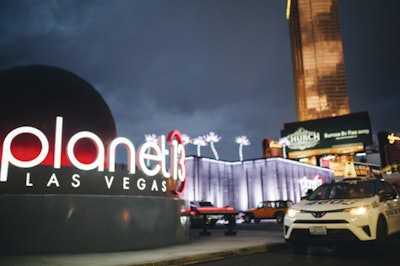
DF: We see over 110,000 visitors a month. One of our biggest protocols is not allowing people to sneak anything, whether it’s drinks or other hazardous things, within our facilities. One of our many trainings is to have the ability to scan who is approaching the building. A lot of our customers are coming off of ride share, so they’re just dropping off people constantly. We also have security out front. It’s important for us to be constantly aware of who’s entering the building.
MS: What challenges did regulations pose, and how did you work within those?
DF: Our general counsel and our operations are constantly reading through regulations but also being transparent with our regulators. As we’re creating this vision, we touch base with [regulators] on a frequent basis and are extremely knowledgeable in those regulations because it’s much more difficult to do some of those out-of-box concepts if you don’t know what those limitations are.
MS: Do distractions make people feel safer?
DF: We have all these unique things. ... I think those are a bit distracting, but it’s also [creating] an atmosphere. When you come into an atmosphere, you feel safe, you feel comfortable. You’re not paying attention to security because you’re just shopping like at a normal retail store.







